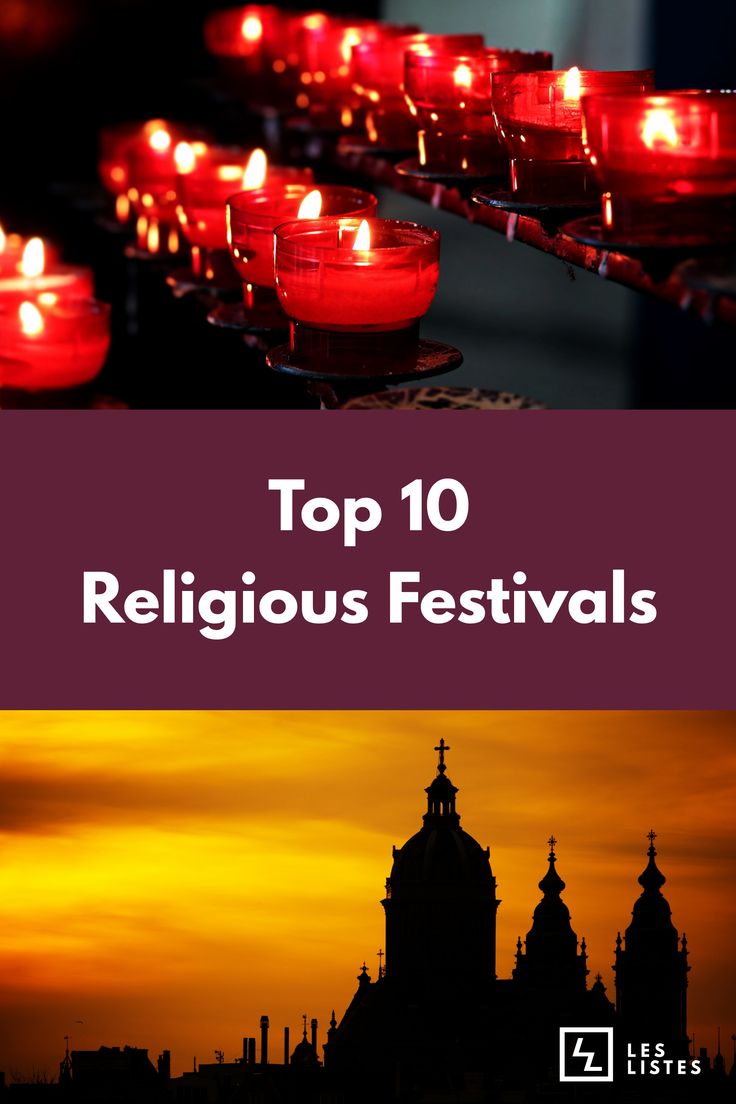From the Hindu Kumbh Mela to the Christian Christmas, religious festivals from around the world showcase the diversity of faiths and traditions. They bring people together, regardless of their culture, language or beliefs, and create a sense of community, belonging, and spirituality. They are a time for celebration, reflection, and growth, and can promote cultural diversity, acceptance, and tolerance. These festivals are significant events in every culture, and they have helped shape the beliefs and traditions of generations around the world.
10 Popular Religious Festivals from Around the World
In every culture, religion is an important aspect of life that is celebrated in different ways. Religious festivals and celebrations are some of the most significant events that bring people together, regardless of their culture, language or beliefs. Here are ten of the most popular religious festivals from around the world that showcase the diversity of faiths and traditions.
1. Kumbh Mela, India
Kumbh Mela is a Hindu religious festival that takes place every three years at four different locations in India. It is considered to be the largest gathering of humans in the world as millions of people come to take a dip in the sacred river to absolve themselves of sins. The festival lasts for a month and includes rituals, hymns, and religious discourses.
2. Eid al-Fitr, Islamic Countries
Eid al-Fitr is the most important Islamic festival that marks the end of Ramadan, the month of fasting. Muslims around the world celebrate this festival with prayers, charity, feasting, and family gatherings. It is a joyous occasion where Muslims offer thanks to Allah for his blessings and express their gratitude.
3. Diwali, India and Nepal
Diwali, also known as the “festival of lights,” is a five-day Hindu festival that celebrates the victory of good over evil. It is celebrated with the lighting of clay lamps, fireworks, and family gatherings. The festival is also celebrated by Jains and Sikhs, making it a diverse and significant cultural event.
4. Hanukkah, Israel and Jewish communities worldwide
Hanukkah is an eight-day Jewish festival that celebrates the rededication of the Holy Temple in Jerusalem. Also known as the Feast of Dedication, it is celebrated by lighting candles on a menorah, playing games, and eating traditional foods such as latkes and sufganiyot.
5. Holi, India, and Nepal
Holi is a Hindu festival that signifies the arrival of spring and the triumph of good over evil. It is celebrated with the throwing of colored powder and water, music, and dance. The festival is a time for forgiveness, unity, and new beginnings.
6. Carnival, Brazil, and other Latin American countries
Carnival is a vibrant and colorful festival that is celebrated in many Latin American countries, with Brazil being the most popular destination. The festival is a time for revelry, music, dance, and costumes. It is celebrated before the Catholic season of Lent as a way to let loose before the religious observance begins.
7. Vesak, Southeast Asia
Vesak is a Buddhist festival that commemorates the birth, enlightenment, and death of Gautama Buddha. It is celebrated through meditation, prayer, and acts of charity. Vesak is a time for reflection, gratitude, and spiritual growth.
8. Yom Kippur, Israel, and Jewish communities worldwide
Yom Kippur is the holiest day of the Jewish calendar and is dedicated to atonement and repentance. It is also known as the Day of Atonement and is marked by a 25-hour fast, prayer, and reflection. The festival is seen as an opportunity for individuals to seek forgiveness and make amends for their wrongdoings.
9. Day of the Dead, Mexico
The Day of the Dead, or Dia de los Muertos, is a Mexican holiday that honors and celebrates the dead. It is a colorful and vibrant celebration that includes altars, offerings, and parades. The festival is a way to remember and honor loved ones who have passed away.
10. Christmas, Christian communities worldwide
Christmas is a Christian holiday that celebrates the birth of Jesus Christ. It is a time for family gatherings, gift-giving, and religious celebrations in churches. Christmas traditions vary from country to country, but the central message of peace, love, and goodwill remains the same worldwide.
Conclusion
Religious festivals bring people from different cultures, backgrounds, and beliefs together to celebrate their faith and traditions. These festivals create a sense of community, belonging, and spirituality. Understanding and respecting other religious festivals can help promote cultural diversity, acceptance, and tolerance.
